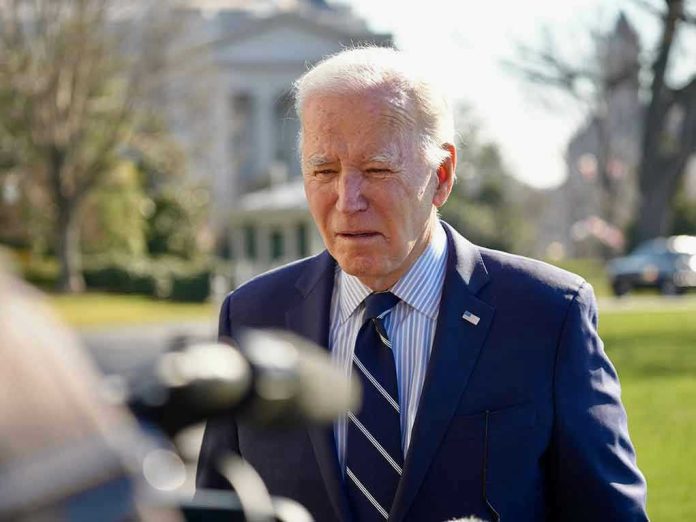
Biden’s mass use of an autopen to pardon thousands of offenders—including preemptive pardons for his own officials—without personally approving each name has ignited a storm over the integrity of the presidential pardon and left Americans questioning just how far executive overreach went before the last administration finally ended.
At a Glance
- Biden’s staff, not Biden himself, gave final approval for mass pardons using a mechanical signature.
- Thousands of nonviolent offenders, officials, and even Biden’s own son were pardoned or had sentences commuted at the last minute.
- The scale and method of these autopen pardons are unprecedented in American history.
- Congress and the Justice Department are investigating the legality and legitimacy of these actions.
Biden’s Last-Minute Pardons: How Did It Happen?
The waning days of the Biden presidency were marked by a flurry of pardons and commutations, but new revelations show that the process was even more hands-off than most Americans could have imagined. According to internal emails and staff statements, Biden set broad criteria for who should be pardoned, then left the mechanical act of signing—using the infamous autopen—to his staff. Chief of Staff Jeff Zients, not Biden himself, authorized the final round of pardons late at night on January 19, 2025. The White House maintained that Biden made all the key decisions, but when pressed, even Biden admitted he did not review or approve all individual names, claiming the sheer volume made it impossible. The scale was staggering: nearly 2,500 nonviolent drug offenders, over 1,500 people on home confinement, and preemptive pardons for allies like Fauci and Milley all received clemency in a matter of hours. That’s not just a rubber stamp—that’s an assembly line for justice, if you can even call it that.
The use of the autopen for such sensitive and far-reaching actions is unprecedented. Previous presidents—Democrat and Republican alike—have used the device for routine paperwork, but never for actions that can upend lives and set legal precedent for years to come. Now, congressional Republicans are investigating whether any of these pardons are even valid under the Constitution, and President Trump’s Justice Department is reviewing the entire mess. The question on every law-abiding American’s mind: Can a president really just hand off the power to pardon to a staffer and a piece of machinery?
Constitutional Crisis or Just More Bureaucratic Nonsense?
The Constitution grants the president the exclusive power to pardon federal offenses, a safeguard meant to ensure accountability and individualized justice. But Biden’s approach turned this on its head. Legal scholars are now split: some argue that as long as the president sets criteria, the autopen is just a time-saver. Others say the president must personally approve each case to fulfill his constitutional duty. No court has ever ruled on this, so the legal status of the autopen-signed pardons is in limbo. For the thousands whose legal fate hangs in the balance, and for the millions who value the rule of law, this isn’t just a technicality—it’s a fundamental question of executive accountability.
Congressional Republicans and President Trump have not minced words in their criticism. Trump called the pardons “void” and “a disgrace,” while GOP lawmakers are demanding full transparency into who was pardoned and why. The controversy has already sparked calls for legislative reforms to make sure no future president can delegate this power to faceless staffers or soulless machines. Americans who have watched years of government overreach, from open borders to reckless spending, see this as yet another example of the arrogance and incompetence that defined the last administration.
What Comes Next? Uncertainty and Calls for Reform
The fallout from Biden’s autopen pardons is just beginning. Legal challenges are expected as courts are asked to decide whether these signatures are worth more than the paper they’re printed on. If a judge finds that the president can’t delegate the act of pardoning, thousands could see their clemency revoked. On the other hand, if the courts uphold the process, future presidents might be tempted to issue mass pardons with a single push of a button, further eroding the integrity of this constitutional power. The reality is that Americans—especially those who believe in accountability and the rule of law—are left cleaning up the mess.
Beyond the immediate legal uncertainty, this episode has fueled fresh cynicism about government transparency and the unchecked power of the executive branch. The Biden administration’s reliance on mechanical signatures for decisions of this magnitude is a slap in the face to every citizen who expects the president to take his job seriously. As investigations unfold, the country waits to see whether justice and common sense will prevail, or whether this latest abuse of power will become just another sorry footnote in the history of bureaucratic overreach.




